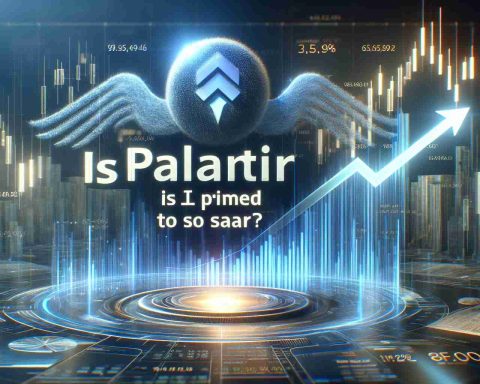NVIDIA, often recognised for its groundbreaking graphics processing units (GPUs), is now making waves on the stock markets, particularly in the context of AI-driven trading. As the capabilities of AI evolve, NVIDIA’s technology is becoming an integral part of the financial sector’s future.
NVIDIA’s GPUs and AI Integration
NVIDIA’s advanced GPUs are at the forefront of processing vast amounts of data with unmatched speed, making them ideal for high-frequency trading environments. These GPUs power AI algorithms that can analyse market trends, predict stock movement, and execute trades faster than traditional methods. Financial institutions are increasingly investing in NVIDIA’s technology to gain a competitive edge, reduce response times, and enhance accuracy in stock analysis.
Transforming Stock Exchange Dynamics
The emergence of NVIDIA-powered AI tools is expected to transform the dynamics of stock exchanges globally. By enabling real-time data analysis and facilitating decisions that were once humanly impossible, NVIDIA is setting a new standard for financial trading. This not only optimises trading strategies but also minimises risks associated with human error.
The Future of Trading
With NVIDIA continually pushing the boundaries of what AI can achieve, the future of stock trading looks promisingly efficient. As more financial firms adopt these technologies, the traditional trading floor may soon become a relic of the past.
In conclusion, NVIDIA isn’t just leading in tech innovation; it’s reshaping entire industries. The stock market, a cornerstone of global economics, is just one of the many domains poised for transformation by NVIDIA’s cutting-edge technology.
The Environmental Implications of AI-Driven Trading Powered by NVIDIA
As NVIDIA’s advanced GPUs play an increasingly pivotal role in AI-driven stock trading, they bring forth a revolution in the financial sector that extends far beyond economic gains. However, beyond reshaping the future of trading and augmenting financial strategies, this technology also holds potential implications for the environment, future humanity, and the global economy.
NVIDIA’s GPUs, renowned for their capacity to process colossal volumes of data with unparalleled efficiency, serve as the backbone for artificial intelligence applications in high-frequency trading. While these technological advancements promise unprecedented speed and accuracy in financial transactions, they also present environmental concerns, primarily related to energy consumption and electronic waste.
Environmental Impact
The rise in deployment of NVIDIA’s GPUs for AI-driven tasks significantly elevates energy demands. Data centres housing these powerful processors require substantial electricity to operate continuously and maintain optimal temperatures. This surge in energy consumption can contribute to increased carbon emissions unless mitigated by renewable energy solutions. Therefore, while the integration of AI in trading optimises market activities, it simultaneously underscores the need for sustainable energy practices to offset its environmental footprint.
Economic Influence and the Future
On a broader scale, NVIDIA’s integration into stock markets can potentially lead to economic shifts. Enhanced efficiency may foster more stable markets, attracting investments and stimulating economic growth. However, the need to accommodate these energy-intensive technologies might increase operational costs for financial institutions, pushing economies to innovate in green energy and efficiency measures, which could be pivotal in steering future economic policies towards sustainability.
Human Impact
As AI-driven trading powered by NVIDIA reduces reliance on human judgment and traditional trading practices, the socio-economic landscape may evolve. While the precision of AI can reduce fatal financial errors and make stock exchanges more resilient, it may also lead to workforce displacement, urging a shift in employment paradigms. As the trading floor becomes increasingly automated, a future focused on education and training for jobs in technology and AI becomes vital for ensuring economic equity and opportunity.
The Global Perspective
On a global scale, the transformation aspired by NVIDIA’s technology may set a precedent for other sectors. If the principles of energy efficiency and sustainable integration can be adequately addressed within financial AI applications, they could serve as a model for global industries facing similar challenges. Cultivating a balance between technological advancement and environmental responsibility is crucial for a sustainable future, where AI continues to drive progress without depleting the planet’s resources.
In summary, while NVIDIA’s advancements are revolutionising stock trading through AI, they prompt essential considerations regarding environmental sustainability, economic strategies, and societal shifts. As humanity forges ahead, these intertwined elements must be navigated with a mindful approach to ensure that technological evolution supports a thriving and sustainable world.
NVIDIA’s AI Revolution: Reshaping the Financial Sector
The financial sector is witnessing a seismic shift, as NVIDIA, renowned for its state-of-the-art graphics processing units (GPUs), expands its influence with AI-driven innovations. As artificial intelligence continues to evolve, NVIDIA’s technology emerges as a key player in the future of financial trading.
Pros and Cons of NVIDIA GPUs in Stock Trading
Pros:
– Speed and Efficiency: NVIDIA’s GPUs process vast data volumes at remarkable speeds, which are crucial for successful high-frequency trading.
– Accuracy: The enhanced precision provided by AI-powered analysis minimises error margins, optimising trading strategies.
– Risk Reduction: By automating trades and reducing human intervention, potential risks associated with human error drastically decrease.
Cons:
– Cost: Implementing AI-driven tools necessitates significant financial investment, which might be prohibitive for smaller firms.
– Complexity: Integration of advanced technology requires skilled technical expertise, which might not be readily available in all financial institutions.
Compatibility and Integration Insights
Financial institutions are increasingly aligning their systems with NVIDIA’s advanced GPUs to fully harness the power of AI. Ensuring compatibility between existing software and NVIDIA’s technology is critical for seamless integration. This process often involves partnering with IT firms specialising in AI deployments to tailor solutions according to specific institutional needs.
Innovations and Predictions
NVIDIA is not resting on its laurels; the company is innovating rapidly, aiming to further enhance its AI capabilities. One key trend projected is the increase in AI-driven predictive analytics, which will enhance the accuracy of stock market predictions and investment decisions.
Predictions for the Future:
– AI Dominance: The rise of AI-driven trading strategies will eclipse traditional approaches, making human-led trading less significant.
– Integration With Quantum Computing: As quantum computing technology progresses, NVIDIA’s AI tools may integrate with it, promising unprecedented speed and data handling capabilities.
Security Aspects
As financial institutions rely more on AI-driven tools, ensuring cybersecurity becomes paramount. NVIDIA’s technologies are built with robust security measures to protect sensitive data and trading algorithms from unauthorised access and cyber threats.
Market Analysis
The adoption of NVIDIA’s GPUs in the financial markets represents a growing trend. Market analysis indicates a substantial increase in financial firms investing in AI-driven tools within the next few years, fuelled by the pursuit of gaining a competitive advantage and operational efficiency.
For more details on NVIDIA’s innovations and technology applications, visit the official NVIDIA website.












